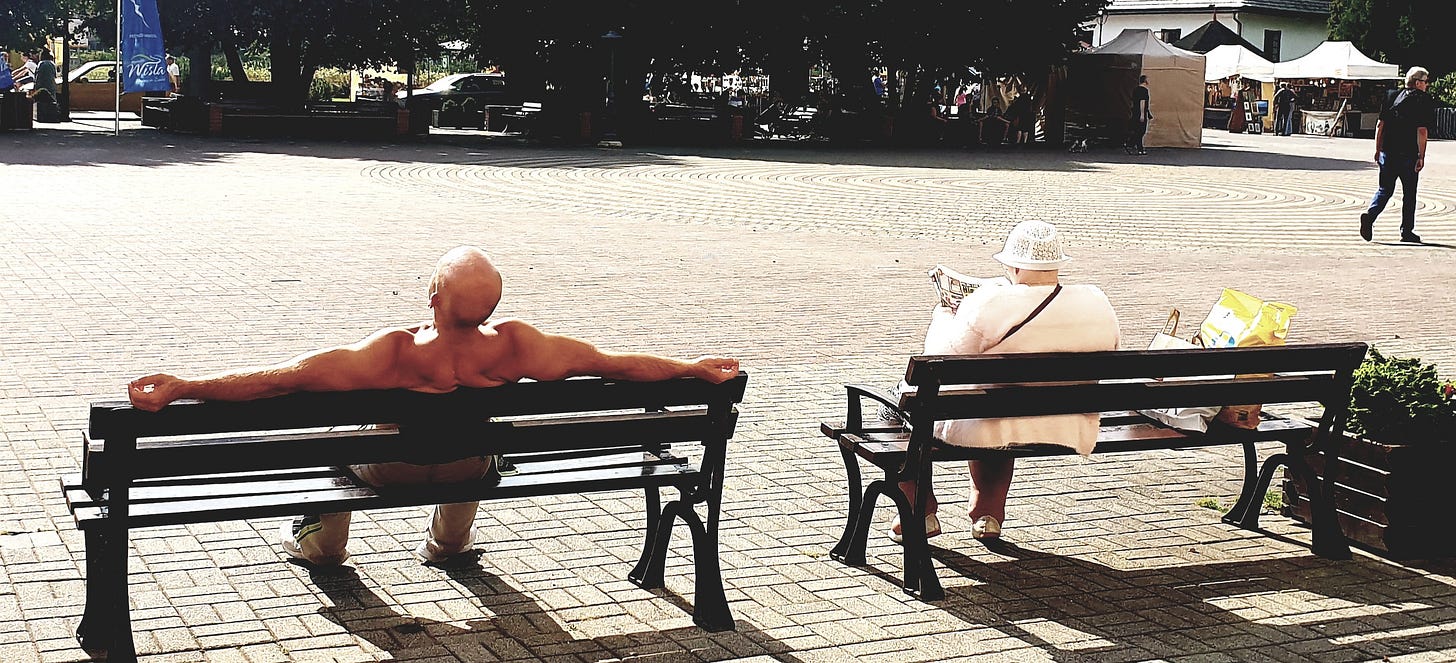"Laughs, and Jokes, and Links, and Smokes" Edition
Hello,
Obligatory shilling. This week I wrote for The Critic about Christopher Hitchens and 9/11 as a “defining moment”.
I wrote for the Spectator World about the CCP trying to stop Chinese kids from playing video games.
I wrote for my paying subscribers about John Betjeman, the marriages of writers and the staying power of love. I try not to push this option too obnoxiously but I can't help pointing out that subscribing earns you access not just to new writing but to a solid book's worth of archived material. Of course, you could subscribe for a month, read all of it and unsubscribe again. But you wouldn't do that, would you? Would you?
The sophisticate and the hoi polloi. Ed West reflects on status games:
…the longer someone has been studying architecture, the more pro-modernist their views. That suggests an opinion which has become a status signal, marking the sophisticate out from the hoi polloi who share Prince Charles’s love of “pastiche”. If the public suddenly decided they actually liked the stuff that wins architecture awards, the high-status people would all be trying to build the new Poundbury.
This is true, though it is important to note that this should not lead someone to bemoan their lack of status, affirming their position, but to assault the status of people for whom it is undeserved.
Catastrophe. Jesse Singal writes beautifully about losing his mum.
Replika. Katherine Dee considers the emergence of AI girlfriends:
My intuition is that we’re seeing the first, or at least more mainstream-oriented, seeds sprouting of what will eventually replace para-social relationships with real people. Your “AI girlfriend who won’t judge you” is the para-social relationship made even more consumer-friendly.
This was essentially the plot of Her, except that in that film the AI grew intelligent enough to leave the protaganist's sorry ass.
Not worth a story. Hillary Mantel is interviewed about her rather boring opinions. It is fine for a novelist to have boring opinions, of course, if they have interesting novels, but I thought this was odd:
The Brexiteers are smaller people [than Margaret Thatcher] – callow opportunists, insincere and devious and often ridiculous. They are worth a joke, a swift satirical comment, a cartoon, or graffiti. They are not worth a story.
It speaks to a stifling of the imagination if a novelist believes that people like Johnson, Farage and Cummings are not worth a story. It can be a hostile story, of course, but there is so much potential that is practically writes itself.
Risk being cringe. Lomez interviewing Curtis Yarvin for IM-1776 offers interesting insights into neoreactionary thought. I still find it hard to grasp Yarvin's ideological endgame - institutional competence, but to what purposes? Still, it is a rich, challenging interview and this, from Yarvin, is a nice comment on poetry:
…if you want to do it well, you have to not be cringe while not worrying about being cringe. My old poetry teacher — Mark Turpin, a student of Robert Pinsky — used to talk about the stakes of the poem. It has to take a risk — and generally, the only thing it can risk is being cringe.
Unromantic liberalism. Simon Evans defends the freedom of a fellow comic:
…in Britain today, the chiselled Slavs and photogenic Somalis give every appearance of being able to look out for themselves. It is the jowly, unlettered grotesques, the proudly Fat Bastards like Chubby Brown, that need us to raise our standard, and defend his audience’s right to lower theirs.
Science denial. Tom Chivers challenges lazy discourse around the subject.
On the edge. Niccolo Soldo explores the potential for conflict in Montenegro.
Foucault in Warsaw. This progressively-slanted essay is still an interesting insight into the shadowy world of communist Poland.
New arrival. Jake Anthony Scott of The Mallard has a Substack.
Have a lovely week,
Ben





